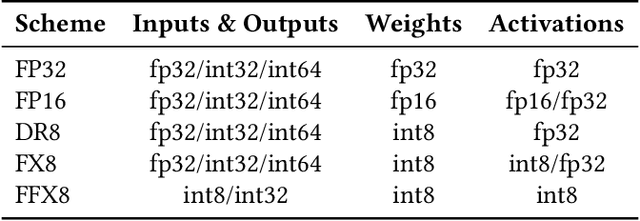CARIn: Constraint-Aware and Responsive Inference on Heterogeneous Devices for Single- and Multi-DNN Workloads
Paper and Code
Sep 02, 2024



The relentless expansion of deep learning applications in recent years has prompted a pivotal shift toward on-device execution, driven by the urgent need for real-time processing, heightened privacy concerns, and reduced latency across diverse domains. This article addresses the challenges inherent in optimising the execution of deep neural networks (DNNs) on mobile devices, with a focus on device heterogeneity, multi-DNN execution, and dynamic runtime adaptation. We introduce CARIn, a novel framework designed for the optimised deployment of both single- and multi-DNN applications under user-defined service-level objectives. Leveraging an expressive multi-objective optimisation framework and a runtime-aware sorting and search algorithm (RASS) as the MOO solver, CARIn facilitates efficient adaptation to dynamic conditions while addressing resource contention issues associated with multi-DNN execution. Notably, RASS generates a set of configurations, anticipating subsequent runtime adaptation, ensuring rapid, low-overhead adjustments in response to environmental fluctuations. Extensive evaluation across diverse tasks, including text classification, scene recognition, and face analysis, showcases the versatility of CARIn across various model architectures, such as Convolutional Neural Networks and Transformers, and realistic use cases. We observe a substantial enhancement in the fair treatment of the problem's objectives, reaching 1.92x when compared to single-model designs and up to 10.69x in contrast to the state-of-the-art OODIn framework. Additionally, we achieve a significant gain of up to 4.06x over hardware-unaware designs in multi-DNN applications. Finally, our framework sustains its performance while effectively eliminating the time overhead associated with identifying the optimal design in response to environmental challenges.
 Add to Chrome
Add to Chrome Add to Firefox
Add to Firefox Add to Edge
Add to Edge